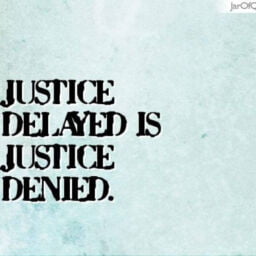Introduction
A system of rules aimed at creating and preserving market competition is known as competition law. Competition law is a branch of law that prohibits businesses from engaging in anti-competitive acts and practices in order to promote and preserve market competition. In today’s dynamic market, the level of rivalry is intensified by the presence of numerous large players in practically all industries. If companies wish to be relevant in the market for the long term, they must deliver a high level of quality in their products. To maximise profits, businesses often engage in anti-competitive behaviour. The Competition Law prohibits such businesses from adopting any kind of anti-competitive practices.
CARTELIZATION
Section 3 of the Competition Act, 2002 (hereinafter referred to as “Act”) defines Anti-competitive Agreements as Agreements that directly or indirectly cause an appreciable adverse effect on competition by way of creating barriers to entry or driving out existing competitors etc. out of the market. According to Section 3(1) of the Act, “no enterprise or association of enterprises or person or association of persons shall enter into any agreement in respect of production, supply, distribution, storage, acquisition or control of goods or provision of services, which causes or is likely to cause an appreciable adverse effect on competition within India.”
Cartels are the most serious of all competition law violations, and they are the most common entity in marketplaces for consumer goods, commodities, and services that are required by other sectors of the economy.
PRICE COLLUSION
Price fixing is a collective agreement among market participants to raise, cut, or stabilize prices to control supply and demand. The method benefits individuals or firms involved in establishing the pricing, while end-users and small-scale businesses on the receiving end suffer as a consequence.
Consumers and small businesses suffer as a result of the practice, which is considered anti-competitive. Price fixing allows businesses to avoid market competition by lowering costs. Collaborating and setting pricing jointly rather than competing in a competitive atmosphere is easier and more beneficial for manufacturers. It reduces the pressure on businesses to maintain competitive pricing and victimizes customers. It’s worth noting that the Competition Act of 2002 makes no mention of it being prohibited for businesses to provide the same price. Only when these companies agree to set prices together does the legality question become relevant. However, it is to be noted that price-fixing is more than just an agreement to set the same price. Businesses can agree on a price fix by working together to:
- Offer the same savings or delivery arrangements
- Create a standard formula for price changes
- Determine the amount of production capacity, disturbing the demand and supply
Price fixing can be of 2 types:
- Horizontal Price Fixing: When the competitors come together and fix a price of a specific product, it is called horizontal price-fixing. For Eg: In the case of the Beer Cartelization among the top beer brands in India. (United Breweries and Carlsberg India Private Limited along with few others colluded prices to avoid losses).
- Vertical Price Fixing: A vertical price-fixing mechanism arises when a member along the supply chain of a product agrees to sell the product at a certain pre-agreed price. For Eg: Manufacturers or retailers or producers agrees on a specific price for the product to be sold in the market.
Case Law
United Breweries Ltd (UBL), Carlsberg India Pvt Ltd (CIPL), All India Brewers Association (AIBA), and 11 individuals have been fined a total of Rs 873 crore by the Competition Commission of India (CCI) for cartelization regarding price collusion, sale and distribution of beer in ten states/union territories, including Andhra Pradesh, Karnataka, Delhi, and Maharashtra. It was alleged that United Breweries, Carlsberg India, and Anheuser Busch InBev India collaborated to control beer pricing since 2009. On 10th October 2018, the facilities of the concerned beer companies were searched and seizure operations were carried by Director General (DG).
According to the official release by the CCI, the concerned beer enterprises were found to be engaged in cartelization in the sale and supply of beer in several Indian cities and union territories. All these dealings were being done through the platform of the All-India Brewers’ Association (AIBA). The CCI has declared AIBA to violate competition law since it was found to be actively involved in enabling such cartelization. However, Anheuser-Busch InBev (AB InBev) and its employees receive a 100% reduction while UBL and its employees receive 40%, and CIPL and its employees receive 20%. The commission waived off the penalty for AB InBev for its critical contribution in providing key evidence while investigating the matter of price collusion. UBL and Carlsberg India have received fines of almost Rs 752 crore and Rs 121 crore, respectively. AIBA has been penalised more than Rs 6.25 lakh, and the regulator has also penalised several persons. In addition to granting a cease-and-desist order, the CCI ordered UBL and CIPL to honour the penalties of around Rs 750 (Seven hundred and fifty) crores and Rs 120 (One hundred and twenty) crores, respectively. The period of cartelization was started about 11 years since 2009, with CIPL joining in 2012 and AIBA acting as a middleman to pull all the strings of the cartel since 2013.
Conclusion
When two entities, generally firms, intentionally decide to offer a product at a pre-defined price is known as price-fixing. Price fixing is practised to keep profit margins high. Monopolies have a better chance of fixing pricing. They don’t have any competition who could undercut them on pricing. The regular dynamics of demand and supply are disturbed when prices are fixed. Monopolies get a clear competitive advantage. The whole practice put consumers’ interests in jeopardy.
Customers have to pay greater prices and the idea of innovation goes down the drain and the general public have no choice but to stick with the same product as they have no other choice. The practice of price-fixing should be avoided and reported to the concerned authorities so that the consumers are offered the best quality products at rational/reasonable prices. The authorities should keep a check and regulate the market frequently. The barriers in entry and exit should also be minimized which ultimately paves the way for innovation in any given industry.
Author(s) Name: Rohit (Punjabi University, Patiala)
















